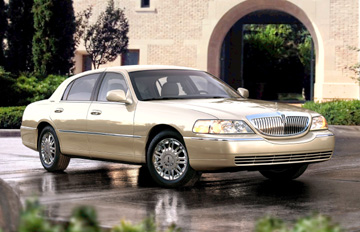
Although many of Ford Motor Co.’s top executives have expressed global aspirations for the Lincoln brand, it appears not everyone is onboard.
While Lincoln may prove successful in some regions of the world, not all are ready to accept a brand so markedly American in style and substance, says Lewis Booth, executive vice president-Ford of Europe and the Premier Automotive Group.
"I see Lincoln as having the potential to be sold in markets that value the strengths of American products, so there may be opportunities outside the U.S.," Booth tells Ward’s during a recent visit to Detroit. "Do I think it will be everywhere? No."
However, Ford President and CEO Alan Mulally told Ward’s in a November interview, "We could bring Lincoln global." Since then, other Ford executives, including Mark Fields, president-The Americas, and Jim Farley, group vice president-marketing and communications, have expressed a desire to globalize Lincoln.
Lewis says markets that readily would accept Lincoln include the Middle East and Russia, where American products have proven popular.
"As the Lincoln model line strengthens, we see opportunities in the Middle East," he says. "They like the attributes of big American luxury cars and Lincoln is perfect for that."
While Lincoln would have a more difficult time in Europe, Ford is studying that possibility, Booth says, but doesn’t want to launch the brand there only to "abandon it a couple of years later."

Ford will "look for opportunities (for Lincoln) where they make sense," he says, adding a business case must be made before Lincoln vehicles would be marketed outside North America.
"Whether we can afford to invest in a new brand in world markets is a big question, and we haven’t come to any conclusions," he says.
Booth does agree Mulally’s "One-Ford" strategy, designed to leverage the auto maker’s global resources, is paying dividends as personnel on both sides of the Atlantic are learning from one another.
One example is technology sharing, he says. Ford of Europe has expertise in diesel engines that can be applied to future North American products, while North America’s hybrid-electric powertrains could be adapted for European use.
"Using the company’s resources and working together and trusting each other gives us an advantage," he says.
Looking ahead, Booth says Ford’s biggest challenge is the economy, both in Europe and the U.S.
Last year was tough for Ford of Europe, particularly in Germany, where the retail market dropped 25% compared with prior-year. While Booth predicts some improvement in Germany this year, "I see some risks in Britain," and "Spain has been off a little bit."
In the U.S. the declining value of the dollar will continue to drag down the profitability of Volvo Cars, he says.
"The continued strength of the euro and (Swedish) kronor against the dollar is going to be a challenge to our export business in the U.S.," Booth says. "My big worries for 2008 are around the economic strength in the European region and in the U.S. for Volvo."




